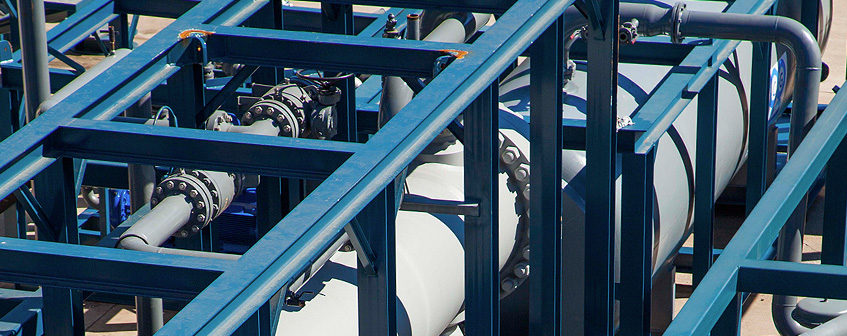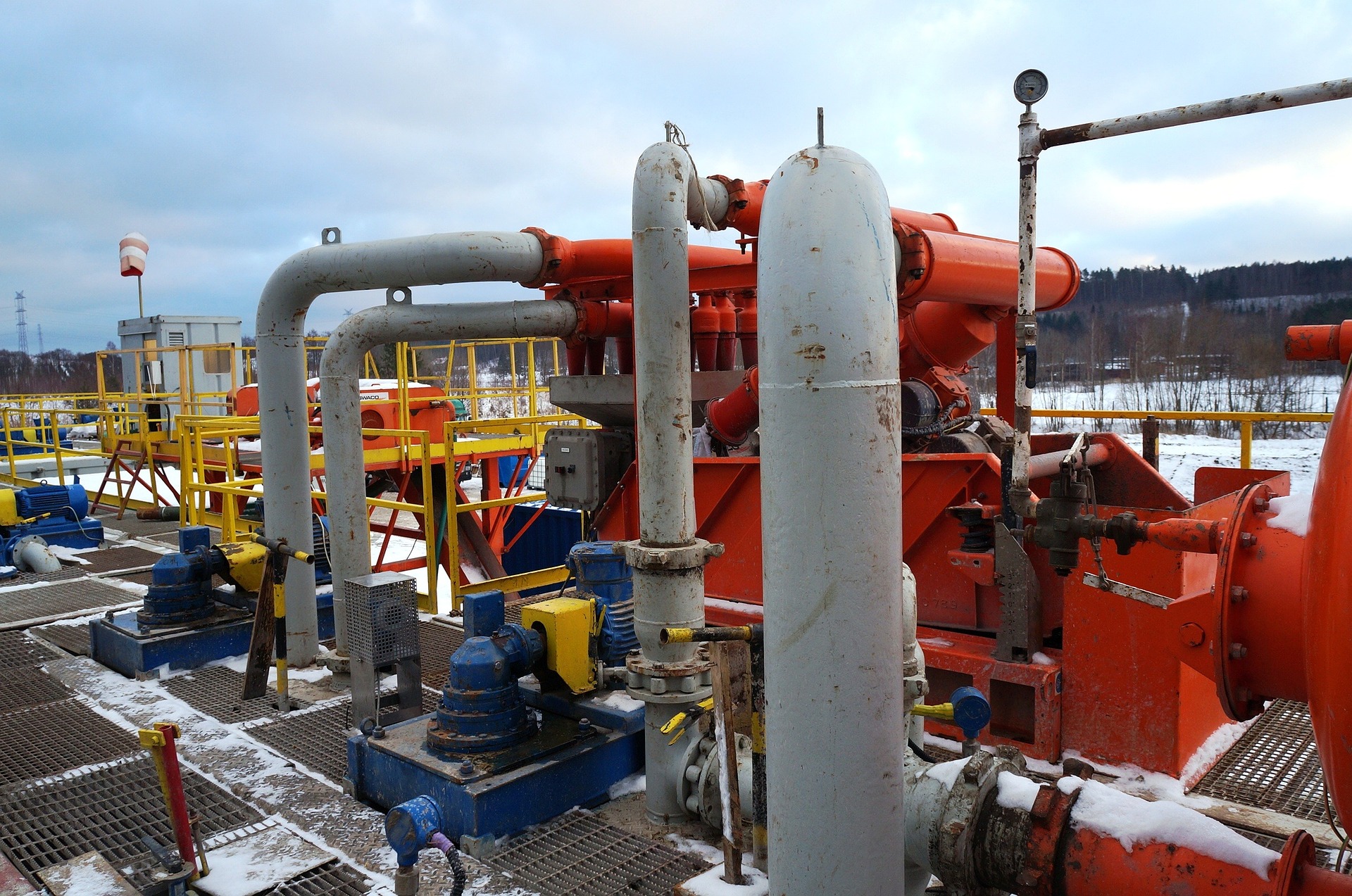Superior Rentals reviews: strengths and weaknesses
A Comprehensive Guide to the Different Kinds of Oil Field Equipment and Pipeline Equipment Available
The oil and gas industry depends greatly on specific devices for efficient extraction and transport. Various kinds of equipment, from drilling rigs to storage tanks, play crucial functions in this complicated procedure. Each item of equipment offers distinctive functions that add to total operational success. Comprehending these parts is necessary for any individual associated with the industry. As the sector advances, so too do the innovations that support it. What advancements are on the horizon?

Drilling Rigs: The Foundation of Oil Expedition
Drilling rigs work as the necessary machinery in the domain of oil expedition, enabling business to access hydrocarbon reserves hidden deep under the Planet's surface. These rigs can be found in various kinds, consisting of land rigs, offshore rigs, and mobile systems, each made to run in certain atmospheres. Furnished with innovative innovation, piercing rigs can penetrate geological formations with accuracy, ensuring efficient source removal. The structural honesty and operational capacities of these rigs are vital, as they need to withstand extreme problems and significant stress. In addition, the selection of a drilling rig impacts the total project expense and timeline, making it an important factor to consider for oil companies seeking to optimize their expedition initiatives and optimize productivity in their procedures.
Pumps: Important for Fluid Activity
In the oil removal procedure, the role of pumps is significant, promoting the movement of liquids throughout different phases of production. Pumps are necessary for transferring unrefined oil, water, and other liquids from below ground tanks to the surface area and then via pipes to refineries. They are available in numerous types, including centrifugal, positive displacement, and completely submersible pumps, each serving certain purposes based on the liquid characteristics and operational needs. Centrifugal pumps are generally made use of for their effectiveness in high-flow applications, while favorable displacement pumps master handling thick liquids. The choice of pump impacts total efficiency, operational safety, and maintenance expenses. Correct choice and maintenance of pumps are important for optimizing manufacturing and minimizing downtime in oil area operations.
Shutoffs: Managing Circulation and Pressure

Valves play an essential duty in managing the circulation and pressure of liquids within oil areas and pipes. Numerous types of shutoffs serve distinct applications, each made to accomplish certain features essential for efficient operation - Superior Rentals Contact. Recognizing the characteristics and uses these valves is necessary for maximizing system performance and safety
Sorts of Valves
Important components in oil area operations, shutoffs play an important function in regulating the circulation and stress of fluids within pipelines and tools. Numerous types of valves are used to satisfy the diverse demands of oil and gas manufacturing. Common kinds include gateway shutoffs, which provide a straight-line circulation and very little pressure decline; world shutoffs, recognized for their throttling capacities; and round valves, identified for their quick on/off control. In addition, check valves protect against heartburn, while butterfly valves supply a light-weight remedy for controling flow. Each shutoff kind is created with details products and setups to hold up against the rough conditions usually discovered in oil fields, guaranteeing integrity and efficiency in procedures. Comprehending these kinds is important for effective system monitoring.
Valve Applications and Functions
While numerous kinds of valves offer distinctive objectives, their primary applications focus on managing circulation and stress within oil and gas systems. Valves such as gate, globe, and round valves control liquid motion, making certain peak performance and safety. Gateway shutoffs are frequently utilized for on/off control, giving marginal circulation resistance. Globe valves, on the other hand, deal specific circulation policy, making them ideal for strangling applications. Ball shutoffs are favored for their fast operation and tight sealing capacities. Additionally, stress alleviation shutoffs are crucial for preventing system overpressure, securing equipment stability. In general, the appropriate option and application of shutoffs enhance functional effectiveness, making certain the trustworthy transportation of oil and gas via pipes and handling facilities.
Compressors: Enhancing Gas Transportation
Compressors play a critical duty in the effective transport of gas, ensuring that it relocates efficiently with pipes over fars away. These devices raise the pressure of all-natural gas, permitting it to conquer friction and elevation changes within the pipeline system. Additionally, compressors promote the harmonizing of supply and demand, fitting changes in consumption and manufacturing rates. Various kinds of compressors are utilized in the sector, consisting of centrifugal, reciprocating, and rotating screw compressors, each offering unique benefits based on the functional demands. Regular upkeep of these compressors is necessary to optimize efficiency and minimize downtime, inevitably adding to a trusted gas transport network. Their vital feature emphasizes the value of compressors in the overall oil and gas framework.
Storage Tanks: Safe and Reliable Fluid Administration
Effective transportation of gas counts on various support group, among which is the proper management of tank. These containers play an important role in securely consisting of fluids, making sure that functional efficiency is maintained while decreasing ecological risks. Constructed from durable materials, they are find more info developed to withstand high pressures and corrosive aspects. Appropriately sized and tactically situated, tank help with the smooth flow of gas and various other liquids, preventing traffic jams in supply chains. Regular upkeep and surveillance are crucial to spot leaks or structural concerns, promoting security and conformity with regulative standards. Ultimately, the effective administration of storage space containers is critical for the general honesty and integrity of the oil and gas sector's fluid handling systems.
Pipeline Systems: Infrastructure for Transport
Pipeline systems act as the foundation of the oil and gas industry, promoting the efficient transport of hydrocarbons over large distances. These systems include various elements, including pipes, valves, pumps, and compressors, all thoroughly made to assure smooth flow. The materials used in pipeline construction, usually steel or high-density polyethylene, are chosen for sturdiness and resistance to rust. Pipeline networks can span across land and water, connecting production sites to refineries and warehouse. In addition, progressed technology enables real-time tracking of circulation rates and pressure levels, improving operational performance. The calculated placement of these pipes lessens ecological influence while making the most of source accessibility, thus playing a vital duty in meeting energy needs around the world.
Security Equipment: Making Certain Worker and Environmental Defense
The operation of pipeline systems, while essential for power transportation, likewise offers substantial safety and security difficulties for employees and the environment. Security tools plays a substantial function in reducing these dangers. Personal safety tools (PPE) such as safety helmets, handwear covers, and non-slip shoes safeguards employees from physical risks. Furthermore, gas discovery systems keep track of for leakages, making certain that hazardous substances do not position a danger to workers or the surrounding environment. Emergency shutdown systems are important for swiftly stopping operations throughout a situation, stopping prospective catastrophes. Spill containment materials, including absorbents and barriers, are basic for minimizing environmental effect. On the whole, spending in all-inclusive safety tools is vital for preserving operational honesty and protecting both workers and the atmosphere in the oil and gas market.

Regularly Asked Concerns
Just how Do I Choose the Right Oil Field Equipment for My Job?
Choosing the appropriate oil field devices includes reviewing job specifications, spending plan restraints, and functional requirements. Take into consideration factors such as tools dependability, compatibility with existing systems, and the distributor's online reputation to guarantee peak performance and safety.
What Are the Upkeep Demands for Oil Field Equipment?
Upkeep requirements for oil area devices consist of regular inspections, lubrication, and prompt repairs. Operators needs to likewise comply with maker guidelines, display performance metrics, and guarantee compliance with safety and security guidelines to improve longevity and effectiveness.

Exactly How Can I Make Certain Compliance With Environmental Laws?
To guarantee conformity with environmental regulations, firms need to perform routine audits, apply best techniques, invest in training, maintain proper paperwork, and remain updated on legislation (Superior Rentals reviews). Partnership with ecological companies can also improve adherence to policies
What Is the Ordinary Life Expectancy of Pipeline Equipment?
The learn the facts here now ordinary lifespan of pipeline tools typically ranges from 20 to 50 years, relying on elements such as worldly click over here quality, environmental conditions, and maintenance practices. Regular assessments can considerably influence durability and functional effectiveness.
Exactly how Do I Securely Move Oil Field Equipment to Remote Locations?
Transferring oil area equipment to remote areas calls for cautious planning, consisting of path evaluation, safeguarding permits, utilizing ideal cars, and guaranteeing safety and security procedures are adhered to. Correct training and communication amongst staffs are important for successful transportation.